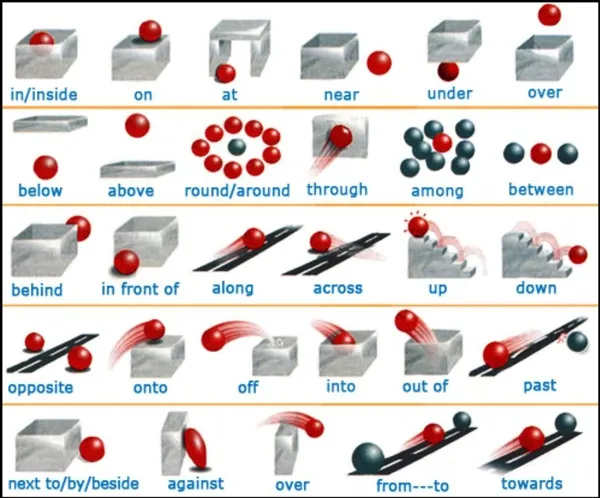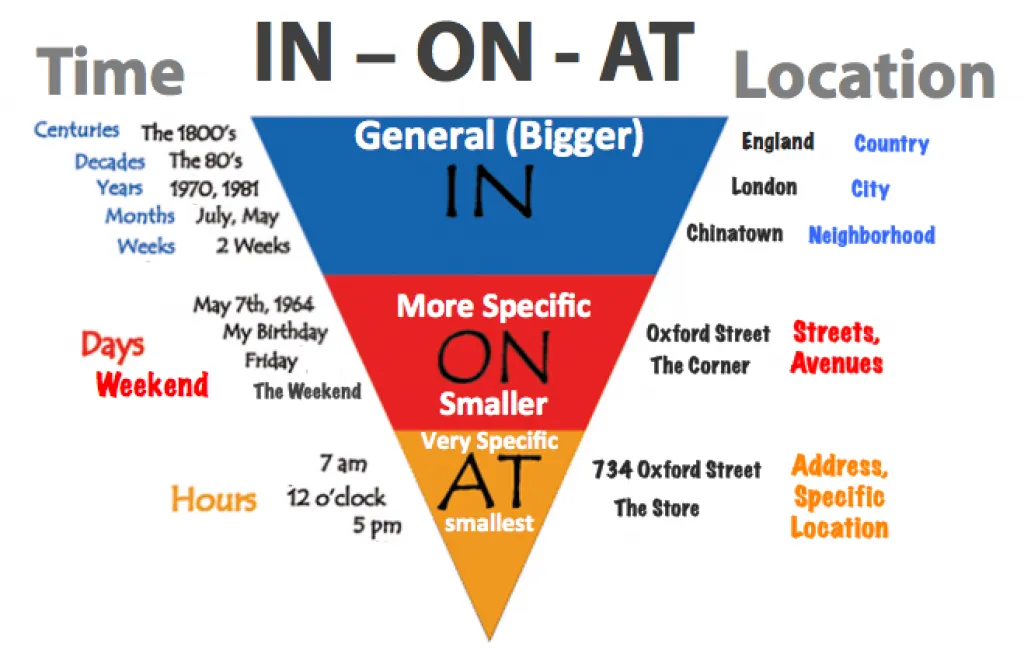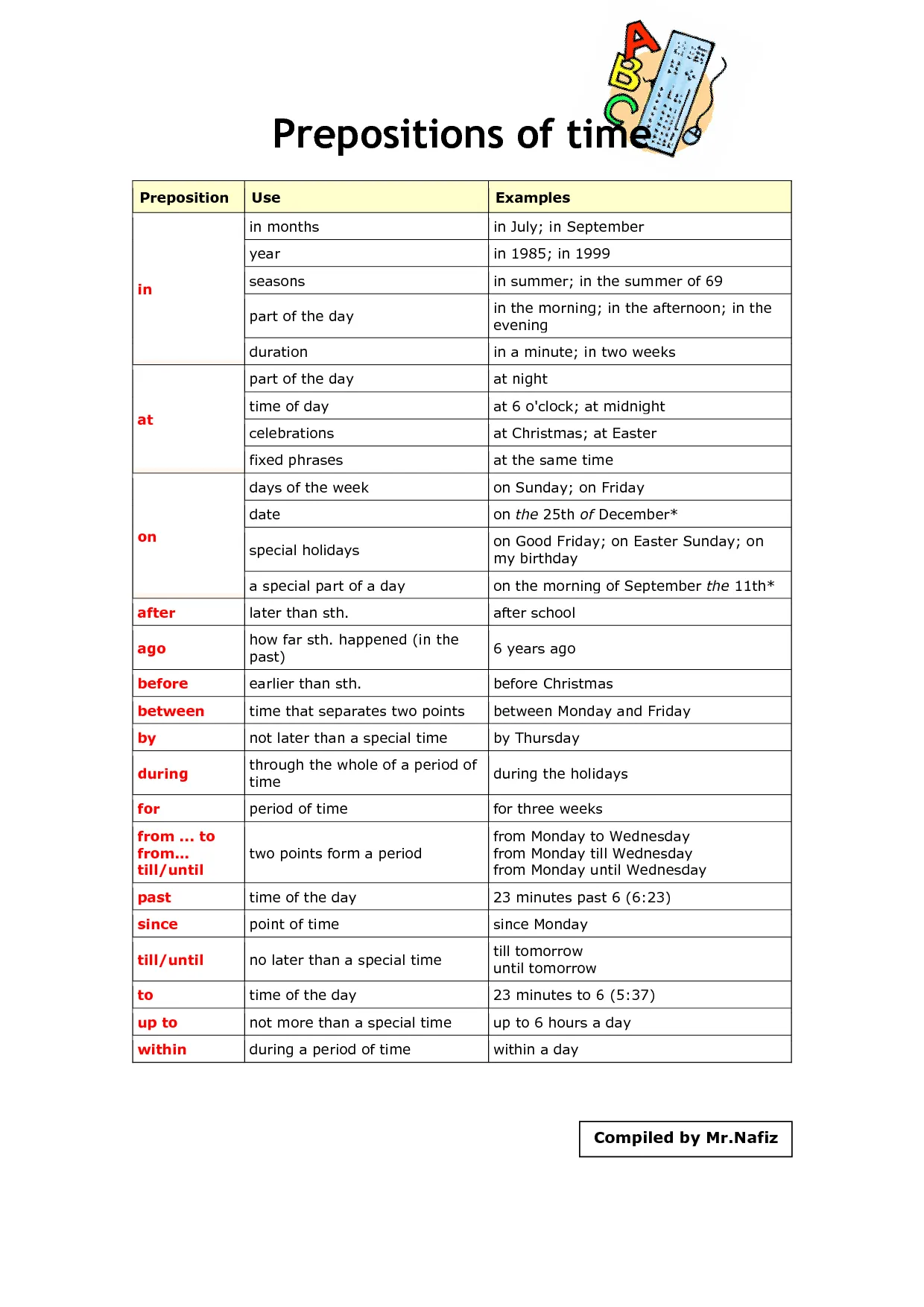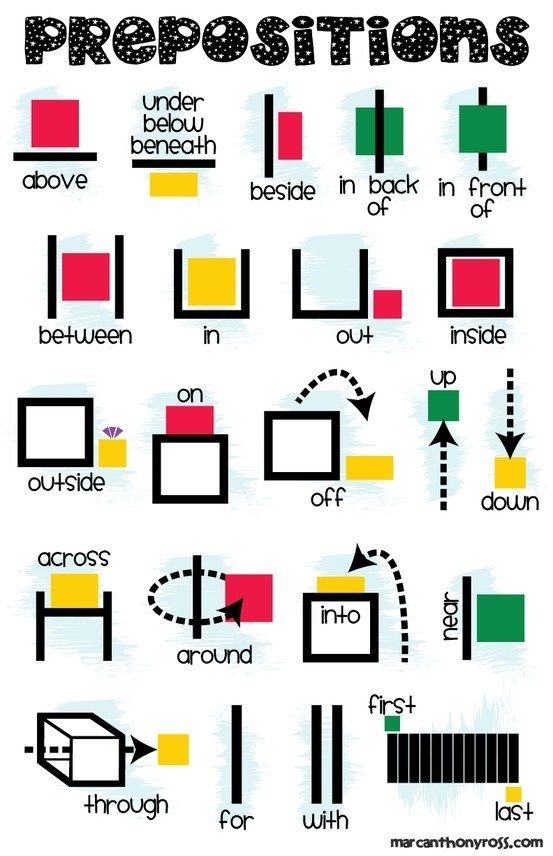adposition
实际上所谓介词adposition分为preposition和postposition,即“前置词”和“后置词”,由于英文里大多数是prepositions,所以broadly, in traditional grammar, simply called prepositions. (还有什么框式介词circumposition)
定义是a class of words used to express spatial or temporal relations (in, under, towards, behind, ago, etc.) or mark various semantic roles (of, for). 用来表达时空关系和语义角色。
semantic roles(thematic relations)是一个语义学概念,即语义关系。
A preposition or postposition typically combines with a noun phrase, this being called its complement, or sometimes object. A preposition comes before its complement; a postposition comes after its complement. English generally has prepositions rather than postpositions – words such as in, under and of precede their objects, such as in England, under the table, of Jane – although there are a few exceptions including "ago" and "notwithstanding", as in "three days ago" and "financial limitations notwithstanding". Some languages that use a different word order have postpositions instead (like Turkic languages) or have both types. The phrase formed by a preposition or postposition together with its complement is called a prepositional phrase (or postpositional phrase, adpositional phrase, etc.) – such phrases usually play an adverbial role in a sentence.
介词通常会跟名词结合,这个词就是adposition的补语complement,或有时是宾语object。(个人认为英文的命名更直接易懂,比如状语和副词都是adverb/adverbial,中文就太简洁而不能顾名思义)
前置词preposition在补语之前;后置词postposition在补语之后。英语大多都是前置而非后置,比如in under of都是前置,有些例外比如ago notwithstanding则为后置,比如"three days ago", "financial limitations notwithstanding"。有些语言比如土耳其语就是后置介词。
adposition + complement = adpositional phrase,通常在句子里作状语adverbial role。
how the fuck to use
动词里及物的一般是无歧义的,不及物的比如look,如果你只说look me到底是look at me还是look above me还是look behind me?(在Cambridge dictionary里用I和T表示及物非及物,intransitive/transitive。因此介词的作用是表达动词与名词之间的关系)
别管是不是什么狗屁虚词,介词是表达实际意思的。
这个回答提到的几点我觉得都很有帮助,
- 回答里提到中文习惯用动词而英文习惯用介词,实际上这只是介词一方面简化句子的功能,比如回答里“住在楼上的人需要提着桶子到楼下去打水。”这个例子,Those who live upstairs have to carry buckets and go downstairs to the tap to get water. ➝Those upstairs have to carry buckets to the tap downstairs for water.中文也同样可以简化成“楼上的要提桶去楼下打水。”而且这让我意识到,
- 其实语言不需要清楚句子结构,就像我组织这两个中文句子并不清楚其中哪些是介词;
- 英文里多用介词可以简化句子、让逻辑更清楚,正如答主对《纽约时报》和《经济学人》的词频统计里前20高频词有近一半是介词。
- phrasal verbs = verbs + prepositions(particles),这样构成的动词短语往往跟原词意思看不出关联,常用的(idiomatic expression)就是由那些most common verbs(seem to represent anything and everything)组成的,因为这些词本义弱,所指的含义相当宽泛,加上不同的助词/介词就有更难掌握的引申义。(move on up)
- on这个例子,后续可以找一些generic verbs词组贴在这进一步理解,在介词的空间含义上接触了才能用on,引申出压力、负担的内涵,比如on your mind/in your mind,又能引申出indicating continuation of a movement or action; functioning这种副词含义,比如he drove on/and so on; turn the light on/he left the light on。
diagrams

有complex prepositions就是一个单词以上构成的preposition,似乎比较容易就先不讨论了,遇到不认识的再说。



difference between Diagram and Chart and Graph and Figure
overlaps with other categories
verbs
中文里很多词既可以作介词又可以作动词,维基举的例子是,
“我到北京去”中,到(to)是介词,去(go)是动词;
“我到了”中,到(arrive)是动词。
conjunctions
最重要的我认为就是跟连词(连接词)的overlap,
Some words can be used both as adpositions and as subordinating conjunctions:从句连词!
(preposition) before/after/since the end of the summer
(conjunction) before/after/since the summer ended
(preposition) It looks like another rainy day
(conjunction) It looks like it's going to rain again today
It would be possible to analyze such conjunctions (or even other subordinating conjunctions) as prepositions that take an entire clause as a complement.
实际上可以将这些连词分析为将整个从句作为补语的介词。
fronting and stranding
| In place | Fronting | Stranding | |
|---|---|---|---|
| Int | You went with who ? | With whom did you go? | Who did you go with ? |
| Int | It applies to I wonder which . | I wonder to which it applies. | I wonder which it applies to . |
| Rel | I placed it on this table. | This is the table on which I placed it. | This is the table which I placed it on . |
prep fronting and stranding can occur when the complement is an interrogative or relative pronoun, as in the following examples. 补语是关系代词或者疑问代词就会出有这三种情况。
介词前置和悬空(搁浅),fronting通常出现在正式文本中,stranding就是从句的一般用法。
adverbs and particle
particle vs. article
助词和冠词,article: a, an, the;
关于particle,中文白话文中常见的助词包括:的、了、著(着)、吧、啊等,大多数都会读为轻声;文言文中则有:之、乎、者、也、矣等。
在传统的语法当中基本上所有没有形态变化的功能词都被归为助词,比如 look up、knock out 中的 up、out 副词,不定式标记 to,否定词 not 。
overlap
There are often similarities in form between adpositions and adverbs. Some adverbs are derived from the fusion of a preposition and its complement (such as downstairs, from down (the) stairs, and underground, from under (the) ground). Some words can function both as adverbs and as prepositions, such as inside, aboard, underneath (for instance, one can say "go inside", with adverbial use, or "go inside the house", with prepositional use). Such cases are analogous to verbs that can be used either transitively or intransitively.
介词和副词的形式经常有相似之处。一些副词是介词和补语和融合,比如downstairs = down + stairs, underground = under + ground, with + in → within,一些词既可以作副词也可以作介词,比如inside, aboard, underneath, 举例来说go inside是副词用法,go inside the house是介词用法。
这些情况对动词来说也是相似的。(没想出例子)
noun
维基没讨论这个情况,我在看片的时候,发现了一个用法——
https://www.xvideos.com/video49533475/_don_t_cum_inside_me_tinder_hookup_removes_condom
标题是cum inside me,评论有人的表达是cum inside of, "did you just cum inside of me?"。
实际上后一种通常是cum the inside of me。
cum inside me中inside是介词,cum the inside of me中inside是名词。